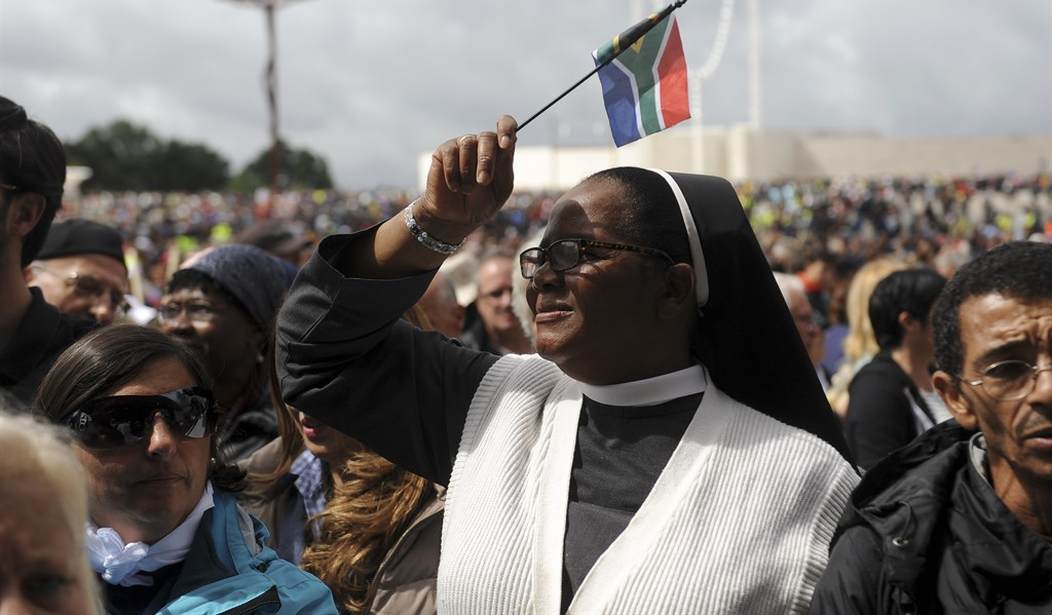South Africa's recent elections witnessed a plunge in votes for the legendary African National Congress from 58% to 40% -- its lowest voting percentage in 30 years. An unstable coalition government is inevitable. Are things likely to change for the South African people? Not really.
Take a survey of Africa. The ANC is not the first entrenched party or administration to tumble from power over corruption and misgovernance. But their successors changed nothing but the faces and choreography.
The poverty, unequal distribution of wealth, executive branch lawlessness, maleducation, brain drain and capital plight remained the same. Have things improved in Zimbabwe after the departure of dictator Robert Mugabe? Have things improved in Tunisia after the ouster of dictator Zine El Abidine Ben Ali? Have things improved in Libya since the ouster of Muammar Gaddafi? Have things improved in the Democratic Republic of the Congo after the ouster of dictator Mobutu Sese Seko? Have things improved in Somalia since the ouster of dictator Siad Barre? You see the picture.
The larger lesson is seldom learned. It is easy to burn down a barn. Building a barn that will endure rain, sleet, wind, hail, storms and snow requires political genius and unspotted character, both in very short supply -- especially when national genius has fled abroad in search of freedom of inquiry.
It is easy to rally the people against what they all hate: corrupt, lawless dictatorships. It takes a superhuman effort to unify people behind a new allocation of power in which the rule of law is king and the king is not law. People who gravitate to politics are characteristically sociopaths with insatiable cravings for absolute power. They abhor separation of powers, which arrests dictatorial ambitions.
Recommended
How many who read this column would bet a dollar on South Africa's emerging from the plunge of the ANC with a rule of law and honest government? Billionaire President Cyril Ramaphosa convinced his poodle parliament that the disappearance of $580,000 in cash from his residential sofa was innocent. Former President Jacob Zuma, whose party helped to topple the ANC majority, enriched himself with lavish bribes in exchange for government contracts or grants. A leopard cannot change its spots.
High voter turnout does not necessarily mean positive or constructive change. Over 97% of South Sudanese registered voters turned out for the 2011 independence referendum, and virtually all voted in favor. But the country quickly plunged to tribal strife and convulsions, leaving more than 400,000 dead and millions of children starving. South Sudan is a failed state by any measure, notwithstanding high voter turnout for a South Sudanese nation.
Most people cannot discern the importance of process and institutional equilibrium for liberty to survive and flourish. Abstractions do not register. They are fixated on personalities as their deliverers. That explains the popularity of strongmen in the corridors of power, like India's Narendra Modi or Mexico's Andres Manuel Lopez Obrador. As James Madison observed in "Federalist No. 55," "Had every Athenian citizen been a Socrates, every Athenian assembly would still have been a mob."
The lesson of South Africa's election, the lesson of self-governance globally, is that education combined with spotless character are the cornerstones of a democratic dispensation crowned with the rule of law and separation of powers. The thinker must be exalted over the armored knight. A nation's glory must be liberty and the march of the mind, not domination and the march of the foot soldier. Thomas Jefferson spoke for the ages in admonishing that, "If a nation expects to be ignorant and free, in a state of civilization, it expects what never was and never will be."

























Join the conversation as a VIP Member